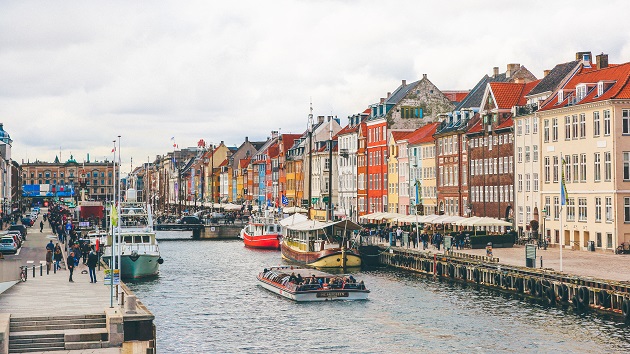What is the attitude of the parties / candidates towards freedom of religion for all, including in public? How will they make sure that people of all faiths and none can live together as good neighbours?
 Nyhavn, in Denmark. /Photo: Nick Karvounis (Unsplash, CC0)
Nyhavn, in Denmark. /Photo: Nick Karvounis (Unsplash, CC0)
In May 2019, all European Union citizens will be called to cast their votes for the new European Parliament. The European Elections provide an important opportunity to improve the European Parliament and the way it operates.
But how do you know what candidate or party to vote for? It would not be right for us to tell you how to vote but we do have some questions that could help you decide. Investing this little extra effort is energy well spent as your vote will have long-term consequences.
Questions for Reflection
1. Politics is not just about the will of the majority. Will the parties or candidates work for the common good of all?The ignored, sick, vulnerable, rich or poor, all regions, young or old, indigenous or migrant communities?
2. Politics is not just about the next five years. What is the long-term vision of your candidate and/or party? What kind of society will today’s promises bring in the future?
3. Are politicians using “Christian” language? What does it really mean to them – in their lives, as well as in their political promises? How does that match your understanding of biblical Christian faith?
4. It is important to be proud of our country, both past and present. But even the most splendid country will not be able to survive in isolation. How do the candidates intend to improve relationships between nations within the European Union and collaborate with them?
5. Power can be dangerous. Since we are all sinners, power should be spread widely. Therefore, what is the attitude of the parties / candidates towards democracy, including media & judicial independence?
6. Do you normally give your vote to one party or candidate? Are they still worthy of your support? How do they measure up to a wide range of biblical values?
7. What is the attitude of the parties / candidates towards freedom of religion for all, including in public? How will they make sure that people of all faiths and none can live together as good neighbours?
8. How supportive are the parties / candidates of flourishing families based on lifelong heterosexual marriage and also community cohesion?
9. How do the parties / candidates balance the importance of protecting Europe from crime & terrorism and ensuring human rights & democracy?
10. How do the parties / candidates regard truth, including combatting exaggeration, scapegoating or other fake news? How open are they to engage in constructive political debate, including interaction with the public?
This article is one of the resources produced by the European Evangelical Alliance socio-political team in relation to the European Parliament elections of May 23-26, 2019.

Las opiniones vertidas por nuestros colaboradores se realizan a nivel personal, pudiendo coincidir o no con la postura de la dirección de Protestante Digital.
Si quieres comentar o